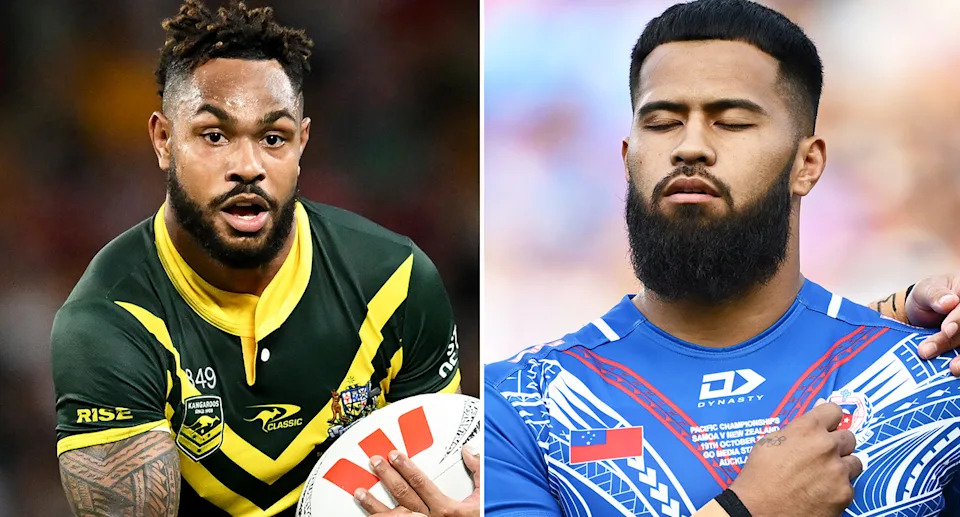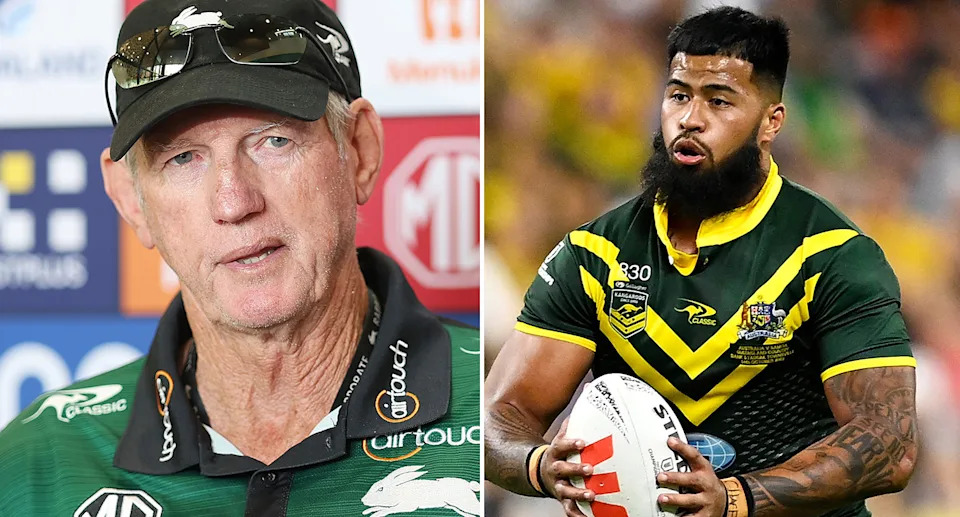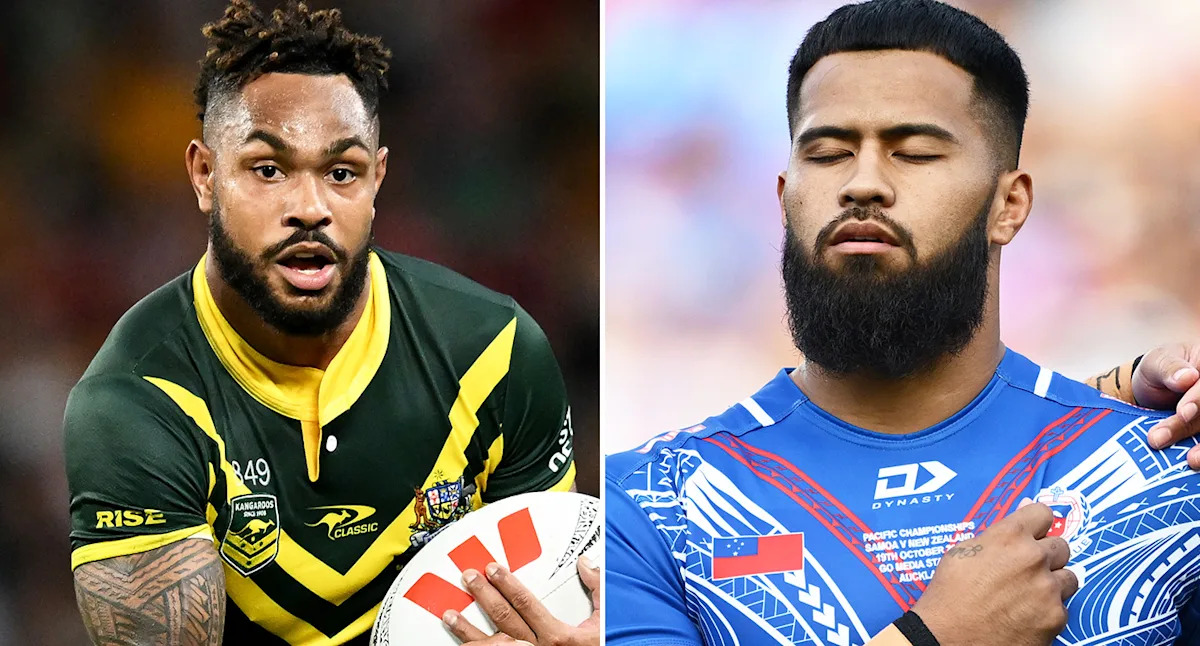International Rugby League (IRL) boss Troy Grant has ruled out changes to Test eligibility rules, in the wake of high-profile defections from Payne Haas and Hamiso Tabuai-Fidow. The NRL superstars recently decided to switch national allegiances from Australia to Samoa, reigniting debate around whether players should be allowed to swap countries.
Veteran coach Wayne Bennett has been vocal in his push for players to only represent one country throughout their Test careers. And former Kangaroos coach Mal Meninga has also suggested players should be blocked from switching between tier-one and tier-two Test sides.

League bosses have rejected calls to change international eligibility rules to stop players such as Hamiso Tabuai-Fidow and Payne Haas switching national allegiances. Pic: Getty
Players are currently free to change the country they represent each year, with the exception of switching between tier-one nations Australia, New Zealand and England. The situation has led to the likes of Andrew Fifita and Jason Taumalolo making high-profile moves to play for Tonga in 2017.
And it’s paved the way for other top stars to jump ship from tier-one sides in recent years, which has made the international game much stronger. Pacific Island nations Tonga and Samoa are now legitimate heavyweights on the international stage, with the latter’s run to 2022 World Cup final evidence of that.
But the growth of the Pacific has also come amid calls for a change to eligibility rules. While Bennett and Meninga are among those who believe players should only be able to represent one country, others argue players should be free to switch once every World Cup cycle.

Wayne Bennett believes players such as former Kangaroos prop Payne Haas should only be able to represent one Test nation in their career. Pic: Getty
That would allow players such as Haas and Tabuai-Fidow to switch national allegiances once every four years, and the pair could return to the Kangaroos after next year’s World Cup. But the IRL boss does not believe the current system needs changing, with the international game stronger than it’s ever been.
“Why change something that is working?” Grant told AAP. “I like the rules as they are. The responsibility we have as an organisation is to provide the best available eligible players to represent their nation.
“And they can be eligible by birth, by heritage through the grandparent rule or by citizenship. They’re the rules. And if they qualify, they are eligible. You want the best players available who are eligible for that country, to put a showcase on for the fans.”
Samoa coach slaps down ‘archaic’ calls for change
His response comes after Samoa coach Ben Gardiner warned it would be “archaic” to alter the current rules. He argued it would take the international game back to its less competitive years. And Gardiner also rejected suggestions that the likes of Samoa and Tonga should be elevated to tier-one status due to their standing on the world stage.
“The tiering is not an on-field tiering performance, it’s about off-field governance,” he said. “It is all about the domestic capabilities of their leagues. They are small countries, Tonga has a population smaller than Canberra. There is only so much capacity for them to do things.”
RELATED:
International eligibility rules are separate to State of Origin, where the NRL is considering loosening restrictions on Australian-raised England and New Zealand representatives featuring. The change would mean the likes of Sydney-born Victor Radley would be able to play Origin for the Blues, despite representing England in Tests.
with AAP

